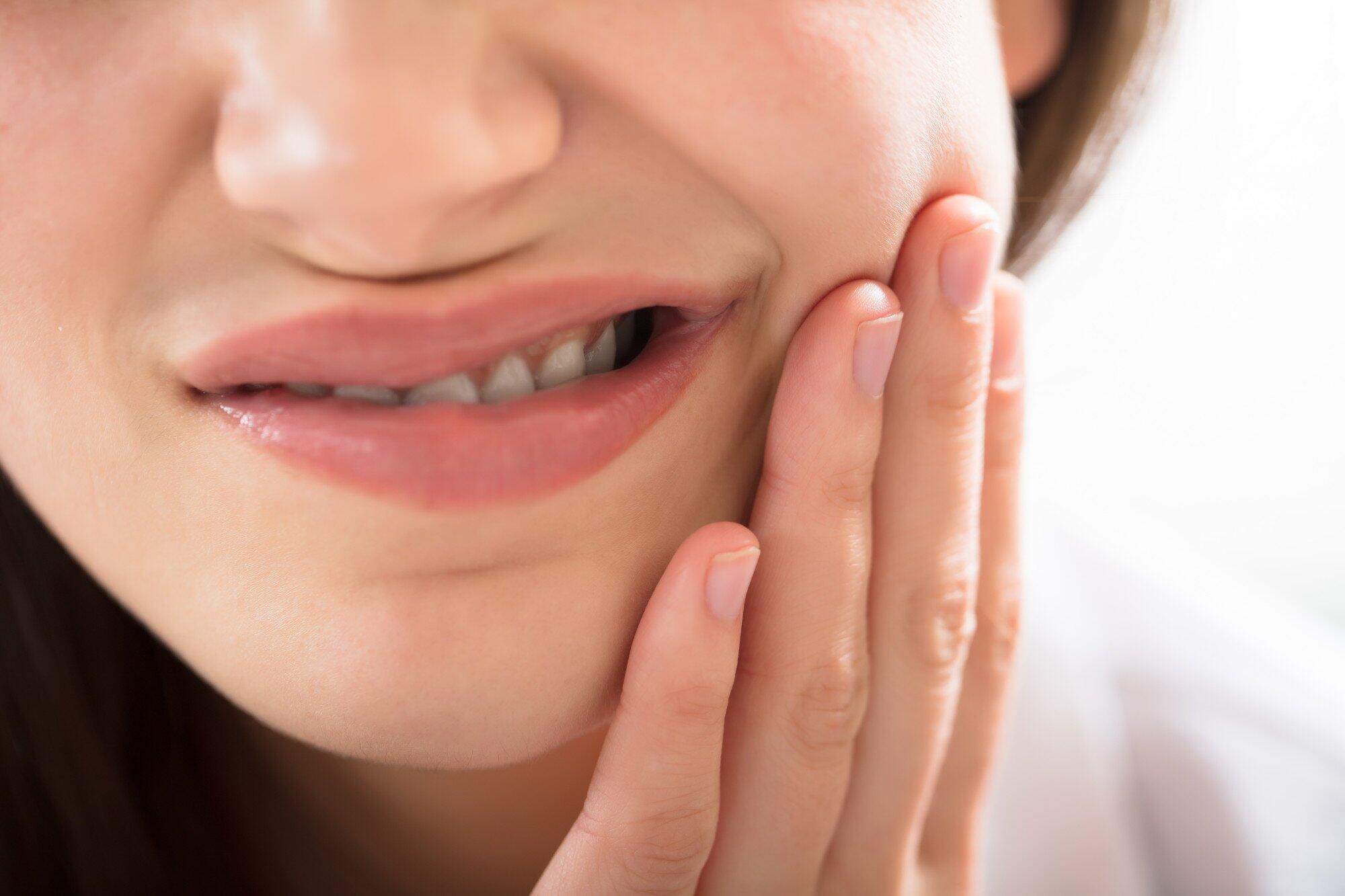
21 Mar Can You Actually Smell Cavities?
Can people smell cavities? This question often sparks curiosity and speculation in discussions about oral health. Many people wonder whether the decay process in a cavity emits a distinct odor detectable by the human nose.
Read on to discover if cavities actually smell, along with other potential causes for dental odors. Plus, gain valuable insights into what a cavity is and the importance of regular oral checkups.
Understanding Dental Odors
Let’s first learn about dental odors before we discuss whether cavities have a specific smell. The human mouth is home to a wide array of bacteria. These bacteria commonly interact with food and saliva to produce various compounds that help break down foods.
Some of these compounds, such as hydrogen sulfide and methyl mercaptan, are notorious for their foul odor. These compounds are known as volatile sulfur compounds (VSCs). When bacteria break down leftover food debris in the mouth, especially sugars and carbohydrates, they release VSCs as byproducts. These compounds are responsible for the unpleasant odor associated with bad breath, commonly referred to as halitosis.
Certain dental problems like gum disease and tooth decay can make bad breath worse by increasing the production of smelly compounds.
Can People Smell Cavities?
Now, let’s address the burning question: can people actually smell cavities? Untreated cavities can cause bad breath from decay, but detecting cavities just by smell is mostly a myth.
Unlike the distinct aroma of garlic or coffee, cavities do not have a universally recognizable scent that can be reliably detected by the human nose.
The odor associated with cavities is often subtle and overshadowed by other factors, such as the presence of food particles or general bad breath. Additionally, individual sensitivities to odors vary greatly among people, making it even more challenging to identify the specific scent of tooth decay.
Some people believe they can detect cavities by smell. However, they are most likely smelling bad breath in general, not the cavity itself.
Factors Affecting Oral Odors
Several factors can influence the perception of oral odors and contribute to the misconception of smelling cavities. One significant factor is oral hygiene practices. Regularly brushing, flossing, and using mouthwash can reduce bacteria and food buildup, as well as prevent tooth decay. This helps prevent bad breath by minimizing the production of VSCs.
Dietary choices also play a crucial role in oral health and odor. Foods high in sugar and carbohydrates provide fuel for bacteria to thrive, increasing the likelihood of bad breath and dental issues.
On the other hand, consuming water-rich fruits and vegetables can help cleanse the mouth and stimulate saliva production, which acts as a natural defense against oral bacteria.
The Importance of Dental Checkups
While smelling cavities may not be a reliable diagnostic tool, detecting and treating dental problems early is crucial for maintaining oral health. That’s why our expert team at McIlwain Dental Specialists recommends regular dental checkups and cleanings; as they are essential for identifying cavities, gum disease, and other issues before they worsen.
Our dentists use various diagnostic tools, such as visual exams, X-rays, and intraoral cameras, to assess the health of your teeth and gums accurately.
Additionally, maintaining good oral hygiene habits at home, including brushing twice a day, flossing daily, and using antimicrobial mouthwash, can help prevent cavities and reduce the risk of developing bad breath.
What Happens When You Have a Cavity?
When a cavity develops in a tooth, it marks the beginning of a destructive process that can lead to various dental problems if left untreated. Let’s imagine that you have a cavity and take a look at the different steps involved in treating the issue.
Initial Stage
In the initial stages of cavity formation, bacteria in the mouth feed on sugars and carbohydrates from food debris, producing acids as byproducts. These acids gradually erode the enamel, creating small openings or holes in the tooth surface.
Progression of Decay
As the cavity progresses, the destruction of enamel continues, reaching deeper layers of the tooth, including the dentin and eventually the pulp chamber.
Dentin is softer and more susceptible to decay than enamel, making it easier for bacteria to penetrate and spread the infection.
Symptoms
Initially, a cavity may not cause any noticeable symptoms. However, as the decay advances, symptoms such as tooth sensitivity to hot, cold, or sweet stimuli may develop.
You may also experience toothache, especially when biting or chewing food.
Complications
If left untreated, cavities can lead to various complications, including tooth abscess, and a painful infection at the root of the tooth.
In severe cases, untreated cavities can result in tooth loss and spread of infection to surrounding tissues and even into the bloodstream, posing serious health risks.
Treatment Options
Fortunately, cavities can be treated effectively, especially when detected early. At McIlwain Dental Specialists, our dentists are committed to providing personalized treatment options. Based on your unique needs, your treatment plan might include dental fillings, which involve removing the decayed portion of the tooth and filling the cavity with a restorative material such as composite resin or amalgam.
In cases of extensive decay, dental crowns may be necessary to save the tooth. For more invasive treatment options like root canals, our team can help provide a referral to an endodontist.
Prevention
Of course, the best way to deal with cavities is to prevent them from occurring in the first place. To prevent cavities, our dentists recommend brushing your teeth twice daily with fluoride toothpaste, flossing daily, and avoiding sugary and acidic foods. Good oral hygiene is important for dental health.
Regular dental checkups and cleanings are also essential for early detection and treatment of cavities and other dental issues.
Do Cavities Smell Bad?
While the idea of smelling cavities may seem intriguing, it’s more of a myth than a reliable diagnostic method. The human nose simply cannot accurately detect the subtle odors produced by tooth decay.
Schedule your regular dental checkup and cleaning for early detection and treatment of cavities and other dental issues. At McIlwain Dental Specialists, we have over 40 years of experience treating cavities and providing comprehensive dental services for both children and adults. Call us today to book your appointment.


